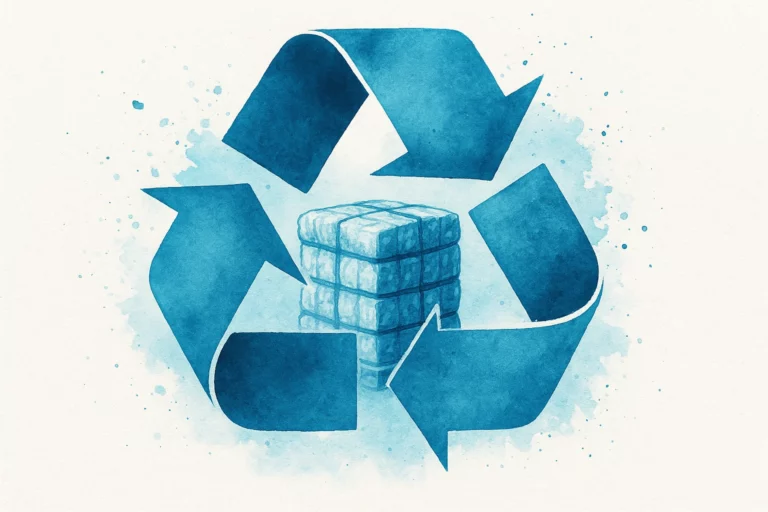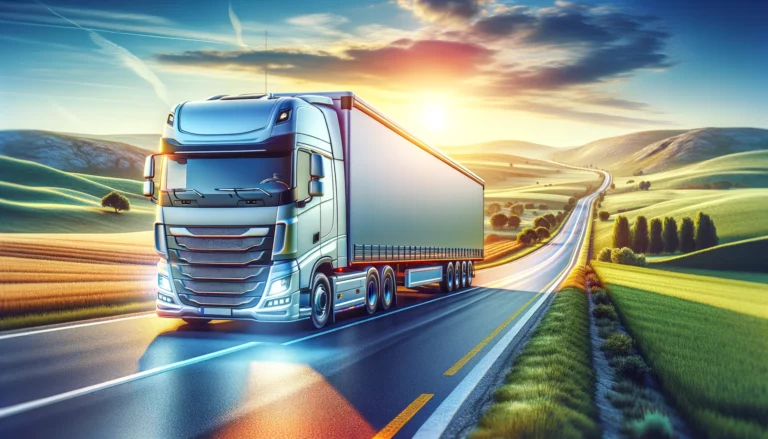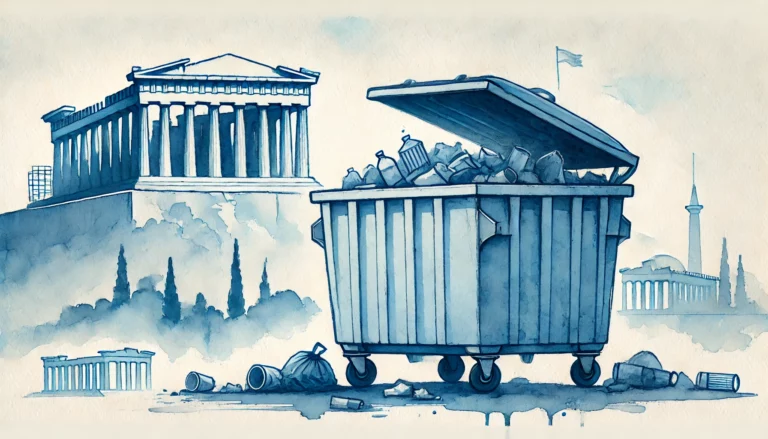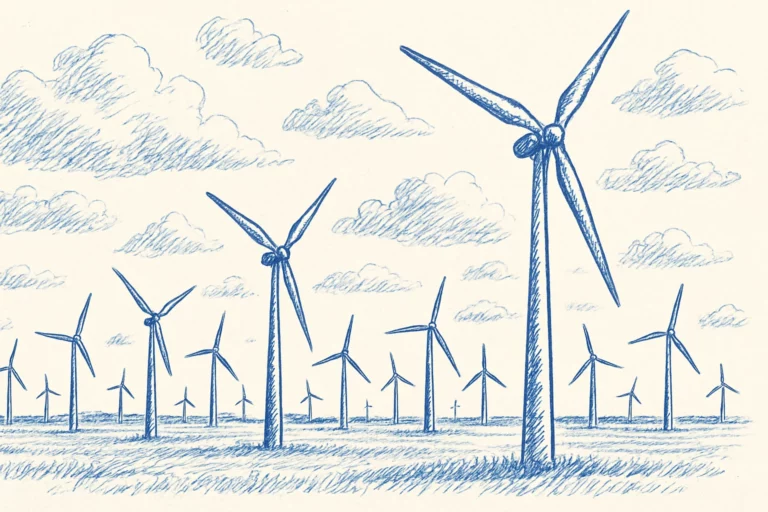Waste management in Germany: A comprehensive overview
Waste transport plays an important role in Germany’s waste management efforts. In just one year over 4 million tonnes of waste was imported for recycling. At the same time almost 3 million tonnes were shipped out of the country. Undoubtedly without the help of reliable transport companies such feat wouldn’t possible. But to transport waste in Germany or abroad, a waste transport permit is be needed. Read on to find out how you can apply for one.
Introduction to waste management in Germany
Germany sets a global standard in waste management with its innovative and efficient systems, emphasizing sustainability. By advancing recycling and waste reduction, the country tackles both household and industrial waste, aiming to lower environmental impact. Remarkably, each German generates about 617 kg of waste yearly, highlighting the critical need for effective waste management.
The country’s commitment to sustainability is further exemplified in its handling of industrial waste. Annually, Germany produces around 339 million tonnes of industrial waste, including both hazardous and non-hazardous materials . This significant volume of industrial waste highlights the need for stringent management strategies to prevent environmental contamination and promote the recycling and reuse of materials.
Do you want to know more about waste transport permit in Germany? Contact us:
office@wastetransportsolutions.eu
Understanding Germany’s waste management framework
Germany’s waste management is guided by extensive laws aimed at reducing environmental impact and enhancing recycling. The “Kreislaufwirtschaftsgesetz” (Circular Economy Act) is key, promoting resource sustainability through waste reduction and recycling.
Abfallverbringungsgesetz
The “Abfallverbringungsgesetz” (Waste Shipment Act) plays a pivotal role in overseeing Germany’s waste transport, including imports and exports. It aligns with the EU’s stringent waste shipment rules, safeguarding environmental and human health during cross-border waste movements. This legislation ensures that the transportation of waste, whether within Germany or across its borders, adheres to high standards of environmental protection.
Gewerbeabfallverordnung
Germany also adheres to the “Gewerbeabfallverordnung” (Commercial Waste Ordinance), which mandates the separation and recycling of commercial and industrial waste. This ordinance requires businesses to sort their waste and recycle materials such as paper, glass, plastics, and metals, significantly reducing the amount of waste that ends up in landfills.
Elektro- und Elektronikgerätegesetz
The “Elektro- und Elektronikgerätegesetz” (Electrical and Electronic Equipment Act) is tailored to address the recycling and disposal of electrical and electronic waste. This law implements the Extended Producer Responsibility (EPR) principle, making manufacturers responsible for the entire lifecycle of their products, including take-back, recycling, and disposal.
Verpackungsgesetz
“Verpackungsgesetz” (Packaging Act) plays a vital role in reducing the impact of packaging waste on the environment. It sets stringent recycling quotas for packaging materials. It also establishes a dual system that obligates manufacturers and retailers to contribute to the costs of waste collection and recycling.
These laws, among others, form the backbone of Germany’s approach to waste management. They are complemented by a variety of regulations, guidelines, and initiatives at both the federal and state levels, ensuring that Germany remains at the forefront of environmental sustainability and waste management innovation.
Waste management – separation and recycling
Germany’s approach to waste separation and recycling is a model of efficiency and sustainability, reflecting the country’s commitment to environmental protection and resource conservation. The systematic process of waste separation at the source is fundamental to Germany’s waste management system, ensuring that materials are recycled to the greatest extent possible and reducing the volume of waste that ends up in landfills.
Despite its successes, Germany’s waste management system faces challenges, including contamination of recycling streams and the complexity of packaging materials. To address these issues, ongoing efforts focus on public education, improving sorting technologies, and developing more recyclable packaging solutions.
Germany’s efforts not only contribute to environmental sustainability but also foster a culture of responsibility towards resource usage and waste generation. As the country continues to refine its waste management practices, it sets a compelling example for the rest of the world to follow in the pursuit of a more sustainable and waste-free future.
The significance of industrial waste in Germany
Every year, Germany handles about 339 million tonnes of industrial waste. This figure reveals both the scale of the challenge and the effectiveness of its waste management system. The construction sector is a major source of this waste. Not too far behind are manufacturing sectors like metal processing and chemical production, significantly contributing to the total volume.
Germany’s approach to managing this waste is guided by strict regulations aimed at reducing environmental impact, enhancing material recovery, and ensuring safe disposal. At the heart of these efforts is the waste hierarchy principle. This strategy emphasizes waste prevention first, then reuse, recycling, and recovery, with disposal as the final option.
International waste trade
Waste import for recycling
Germany leverages its advanced recycling capabilities by importing significant amounts of waste, including paper, plastics, and electronic waste, for recycling. Utilizing its cutting-edge technology, the country efficiently processes these materials for reuse across various sectors. Recent data shows that Germany imported around 4.4 million tonnes of waste for recycling in a single year. This waste, sourced from within the European Union and other countries, highlights Germany’s superior recycling efficiency compared to the waste’s countries of origin.
Waste export data
Conversely, Germany exports a portion of its waste to other countries. This includes waste for which there are specialized treatment facilities abroad or where economic considerations make exportation viable. The exported waste types often include certain hazardous wastes, for which specific countries have the specialized infrastructure to treat and dispose of them safely. Germany exported around 2.8 million tonnes of waste for further processing abroad in the same timeframe. These exports are regulated under the European Waste Shipment Regulation and the Basel Convention. This ensures that waste is handled in an environmentally sound manner throughout its transport and processing.

Critical role of waste transport permits
Germany rigorously regulates waste transport to uphold environmental safety and meet national and international standards. Essential to this regulation are waste transport permits, mandatory for entities moving waste within the country or across borders. Regional environmental authorities, adhering to Germany’s federal laws and international treaties like the Basel Convention, issue these permits.
But navigating the permit acquisition process can be challenging. As a result, many businesses turn to specialized advisory services.
Waste Transport Solutions excels as a top advisor, providing full support for acquiring waste transport permits. We deeply understand the regulatory scene and have strong ties with regional authorities. This expertise allows us to simplify the permitting process, helping companies concentrate on their main activities without regulatory hassles. Using our reseources eases compliance and reduces the chances of delays or legal troubles. This makes us an essential partner for businesses involved in the European waste trade.
***
Want to know how Germany compares to other countries in terms of waste management? Read the following article:







